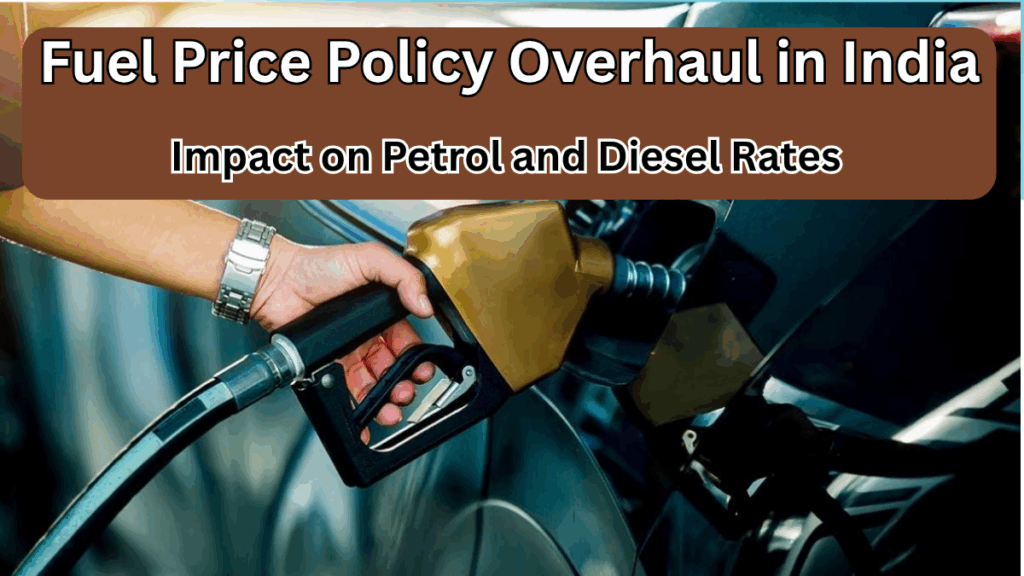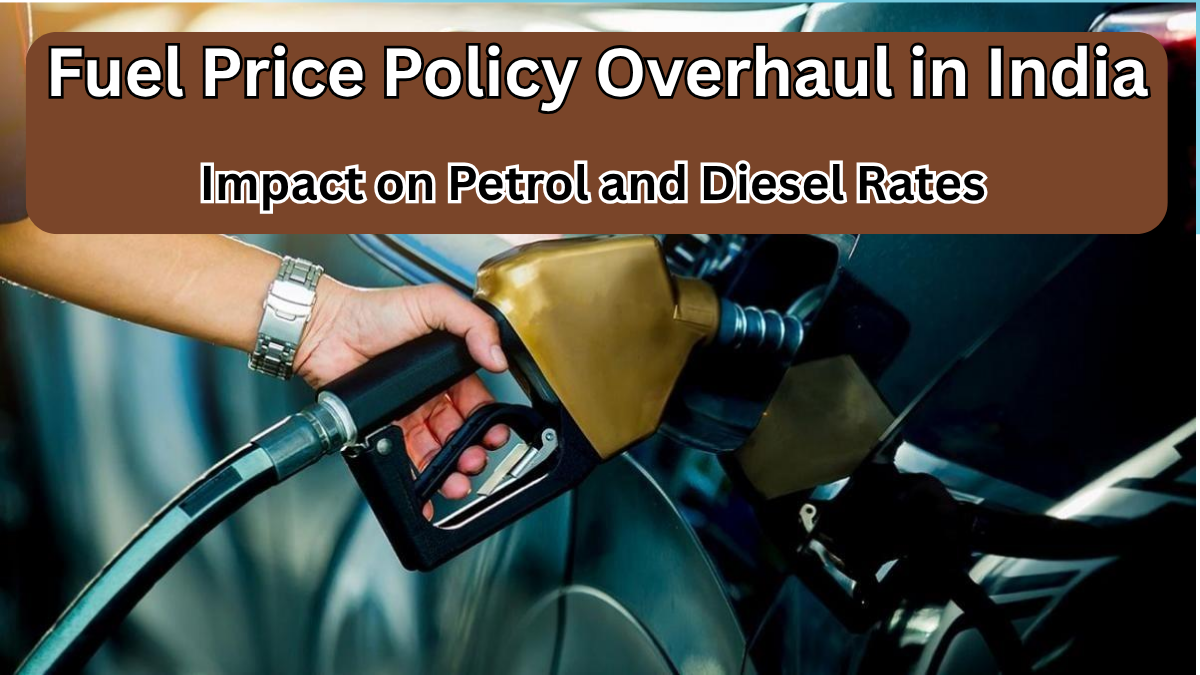The year 2025 is shaping up to be a significant turning point for fuel consumers in India. The government is planning a major overhaul of the fuel price policy in India 2025, and this move is expected to directly impact how much you pay for petrol and diesel at the pump.
Let’s break down what’s changing, why it matters, and how it could affect your daily commute and budget.

What’s Changing in the Fuel Price Policy India 2025?
The Indian government is moving towards a more transparent and dynamic pricing system as part of the fuel reform 2025. This reform aims to reduce government intervention and align domestic fuel prices with international crude rates.
Key Highlights of the New Fuel Reform
-
Daily price updates to reflect real-time global crude prices
-
Reduced subsidies and increased market freedom for oil companies
-
Focus on cleaner fuels and promoting electric vehicle alternatives
-
Uniform taxation structure under discussion to simplify pricing across states
Petrol & Diesel Price Impact: What You Can Expect
The petrol diesel update expected under this fuel reform will influence the rates you see at fuel stations. Depending on the global market, prices could fluctuate more often—but with more clarity.
| Fuel Type | Current System (2024) | New System (2025 Onwards) |
|---|---|---|
| Petrol | Partially regulated, subsidized | Market-driven, based on global rates |
| Diesel | Controlled in rural sectors | Fully deregulated, transparent pricing |
| Price Updates | Weekly/Monthly (varies by state) | Daily revisions via automatic mechanisms |
Why This Matters to You
For the average Indian commuter, truck driver, or small business owner, fuel prices play a big role in monthly expenses. Here’s how the fuel price policy India 2025 might affect you:
-
Two-wheeler owners may see frequent but smaller price changes
-
Logistics companies might face higher costs during global crude surges
-
Car owners may benefit from price drops during international crude dips
-
Daily commuters will have more transparency to plan refueling
A Step Toward Sustainability
Apart from pricing, the fuel reform 2025 is also expected to support India’s green energy goals. There’s a growing push to:
-
Encourage the shift to electric vehicles (EVs)
-
Reduce reliance on fossil fuels
-
Support investment in alternative energy infrastructure
Public Reactions & Industry Opinions
The announcement has sparked a mix of responses:
| Stakeholder | Reaction Summary |
|---|---|
| Consumers | Concerned about frequent changes in fuel costs |
| Oil Companies | Welcome deregulation and reduced political risk |
| Economists | See it as a step toward a free-market economy |
| Environmental Groups | Applaud shift toward cleaner fuel alternatives |
FAQs
1. Will petrol and diesel become more expensive in 2025?
Prices may rise or fall depending on global crude oil rates. With the fuel price policy India 2025, prices will be more market-driven.
2. How often will petrol and diesel prices change?
Under the new system, fuel prices will be updated daily based on international market trends.
3. Will this reform affect fuel subsidies?
Yes. The fuel reform 2025 is expected to gradually phase out most fuel subsidies, making the system more transparent.
4. Is this reform linked to promoting electric vehicles?
Absolutely. The policy indirectly supports India’s shift toward sustainable energy and electric mobility by discouraging over-reliance on fossil fuels.
Final Thoughts
The petrol diesel update planned under the fuel price policy India 2025 is more than just a pricing tweak—it’s a complete reimagining of how India consumes and pays for fuel. While short-term volatility may affect some consumers, the long-term outlook aims for transparency, sustainability, and market efficiency.
Click here to learn more
